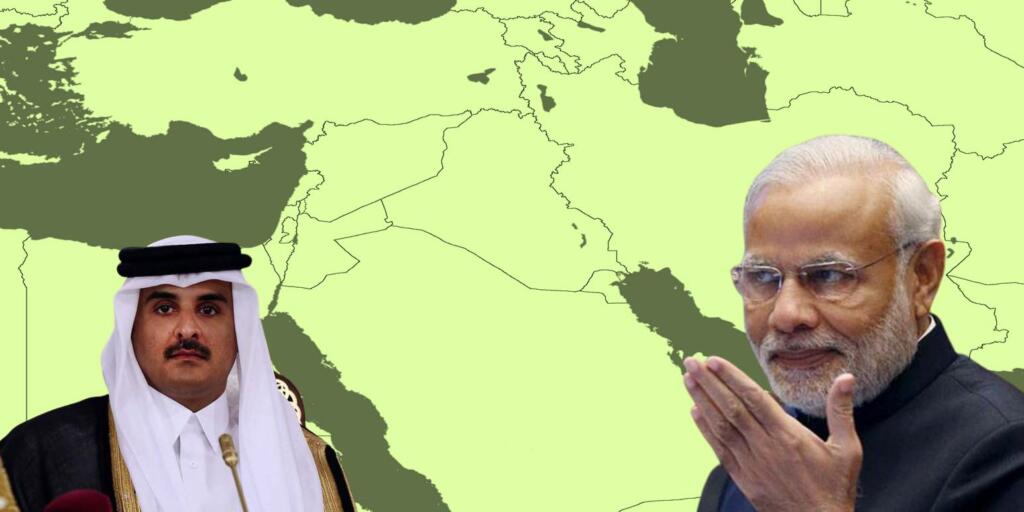Anyone well versed with geopolitics and its games knows that most of the time there is an Economic reason behind any political or even religious move. Political or religious reasons just act as a smokescreen for economic undertones. Keeping it in mind, let me tell you why Islamic nations are miffed at India.
PM Modi and team subject to criticism
Over the last few days, PM Modi, Modi Cabinet, and BJP are being criticized left, right, and center for succumbing to the Gulf pressure. To be honest, the anger is justified. Ever since the Ukraine-Russia crisis picked up, India has been thrashing western hegemony on every forum. People just could not understand what suddenly happened which forced the government to take such a drastic step.
Read more: Last 100 days: How India stamped its authority over the world with élan
While the decision to suspend Nupur Sharma may be a temporary step back, it is important to analyze the actual reasons behind the sudden outburst of this anger by Islamic nations. Trust me, it is not their mutual respect for Islam.
India’s relations with Gulf and complications
India’s increasing bonhomie with the Gulf countries is not breaking news for anyone. PM Modi has established India’s soft power in such a way that Yoga is becoming popular in Arab Countries. Let’s talk a bit about trade with Gulf nations. In 2021-22, India’s bilateral trade with the GCC stood at nearly $154 billion. The numbers are only expected to increase in the future. Additionally, 65 percent of total remittances in India come from Gulf countries.
But, nothing is plain black and blue in trade and especially in trade between countries. The same applies in this case as well. Oil import of India from these countries holds a special place in their trade basket. Varying estimates suggest that oil imports from Gulf countries namely Bahrain, Kuwait, Qatar, Oman, Saudi Arabia, and the UAE account for nearly one-third of oil import needs of India. Out of the above 6 countries of the Gulf Cooperation Council (GCC), 4 have registered official protests with India.
Read more: Dear BJP, whom are you trying to ‘appease’ by throwing out Nupur Sharma?
Russia is emerging as a replacement for Gulf
Now, let’s talk about why these countries felt an impulsive need to interfere in India’s domestic affairs. The main reason behind this is the increasing bonhomie between India and Russia. Over the last few months, India’s oil import needs are drifting away from Gulf Countries and the Middle East as well.
According to a report by the New Indian Express, Russia is providing a major chunk of oil import requirement of India, and that too at a much cheaper rate. Deepening on its internal production, India imports anywhere between 80-85 percent of its total needs. It means that India roughly needs 5 million barrels per day of imported oil. Before the Ukraine-Russia crisis, India imported barely 2 percent of its oil needs from Russia.
The game is not set in Gulf’s favour
But, ill-informed Western sanctions proved to be a boon for India. By the end of April, India was availing more than 7 percent of its imported oil needs from Russia. In May, it witnessed a further upsurge and India was now importing nearly 17 percent of its oil from Russia. In June, the numbers are set to escalate further as India will increase its Russian oil import by more than 20 percent on a month-on-month basis. Moreover, the country is in talks with Russian major Rosneft to further increase it.
To put it simply, Russia is eating into the share of these Gulf countries. As a result of which they are losing a major market. Additionally, the fact that Europe has decided that it will be reducing its oil needs on Russia has sent these nations jittery. Russia is the world’s second-largest oil exporter and India needs cheap oil in the wake of inflationary pressure. It automatically means that India will prefer Russia over Gulf countries.
Frankly, Gulf’s outburst came a bit late. India has been diversifying its oil import basket for quite some time now. But, a sudden increase in oil trade with Russia along with the bond between Putin and PM Modi sent shockwaves into supposedly oil hegemons. In spite of that, they should have responded in a measured way. Now, they can’t blame India if it decides to totally shun them off.
